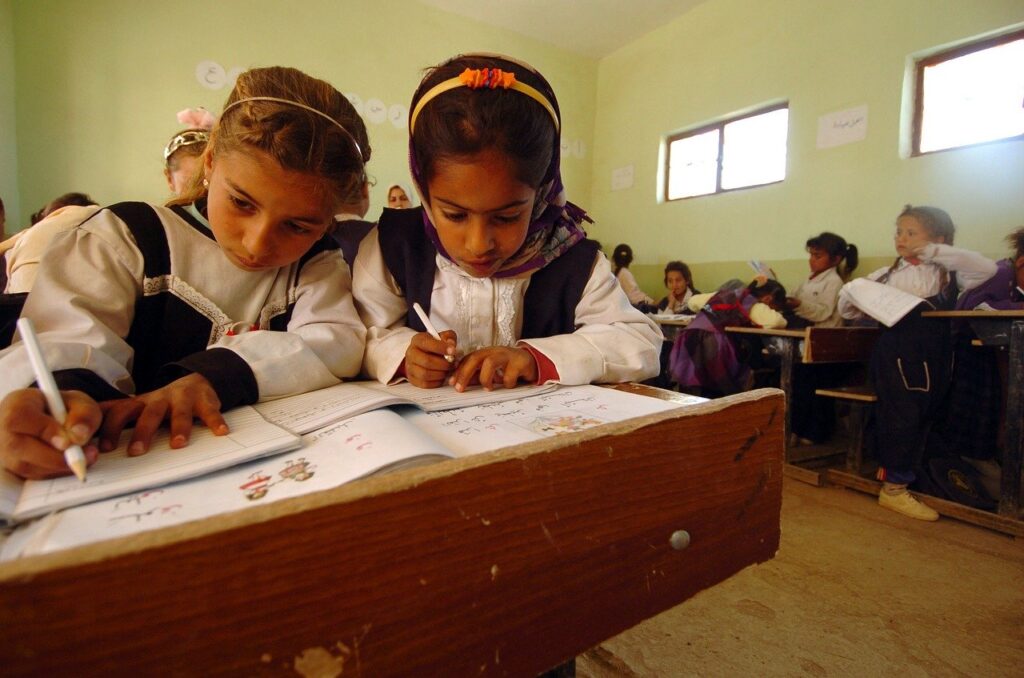

AID Think-tank
July 19, 2021 –
There is a growing global concern that learning outcomes have not been in tandem with the expansive education sector. The extent of the learning gaps is unknown because many countries have few systematic data on whether learning occurs. Evaluation of learning accesses us the overall statistics on the progress of the learning process, and this can be utilized to monitor the quality of systems and pupil learning outcomes. Additional data can also provide for future improvement and decision-making.
The research data for any learning process, if used together with other parameters of the prescribed standard, for instance, the situation, education environment, and pupil attributes, can disclose the components that influence the end product of any learning process. By revealing these crevices in pupil realization and resource delivery, the statistics stand to pinpoint the underprivileged community clusters and are not performing according to the standard as prescribed. On identification, we can be able to provide the remedy to the gaps as identified.
Quality data is a vital tool in ensuring accountability and good governance in our systems to optimize scarce resources. This assesses whether the pumping in of considerable resources in the education sector has had any positive impact on the learner realization. As much as straight responsibility lies with the educational institution, the qualifying strategy and the operating conditions are the sole mandates of all the stakeholders at the entire top echelon of the educational sector.
In this case, we, therefore, have to understand the information that data can disclose and how it can be applied: Learning data, augmented with situational statistics, give knowledge on the efficiency of the learning process, what influences learning realization and how are different clusters performing: who are those are performing poorly and those performing exceptionally well. This access to knowledge is an asset to examining the setup, enhanced optimization of resources, formulation of the agenda, and the strategy cycle.
Education setup examination and critique
The education setup and environment may be examined as follows:
The learning content,
– How is the learning content responding to the stakeholders’ needs? Are they relevant?
– Are the resources being used optimally?
– What influences learning?
– Where do we need to improve?
Suppose disparities are realized in terms of apathy regarding geographical location, political alignment, religious affiliation, or ethnic factors. In that case, remedies have to be put in place to pump in more resources in terms of trainers, capacity building, resource books targeting the improvement of the learning progress realization.
Optimal and efficient resource utilization
The research data obtained may disclose the resource allocation and the disparities attached. It should be noted here that facilities in our educational institutions, accessibility of learning resources, teachers, and time management affect the overall outcome of the learning process. This data is bound to disclose pertinent matters to do with the allocation and utilization of scarce resources.
Objective setting and Strategy formulation
Clarke (2017) puts it that there are huge disparities between countries at varied economic levels regarding strategy and formulation. In general, developed countries have well-built systems of assessment. They utilize data for reforms in the entire sector or as an intervention program to enhance the learning results instead of developing countries that are new in using the assessments and focus on identifying a few isolated cases. As a result, there are a few discontinuous involvements. For instance, lack of resource optimization and inadequate trainers as direct causes of the pathetic realization of the educational goals.
The analysis of the respective data can pinpoint and highlight the critical areas where improvement is wanting. For instance, as alluded by Raudonyte (2019), the Publishing of the interrelationship between pupils’ socio-economic standing and the attached academic realization necessitated policies to handle inequity in Chile. From this, strategies and plans are drawn with the agenda of bringing back the situation to normality.
The day-to-day gathering of the data related to learning and the related issues to check on the policy execution can direct the progress of the activities as planned, disclose the gaps in their execution, show performance indicators, and propose changes to amend the deficiencies. The Learn can illustrate this to read the project in Madhya Pradesh that was evaluated monthly through quality trials to identify deficits and amend (Best & Knight, 2015).
Assessments at the national level can be utilized to determine the outcome of the strategy and approach on learning and offer critique to fill the deficiencies. Theoretically, there is a need for a coherent transition from trials through the setting of objectives, strategy design, execution, and then comparing the outcomes with the set goals to realize the gaps. Practically, this response model is most of the time not organized. This might be due to naivety in assessments, frail practical strength, non-organization among assessment and the authorities involved, and inadequate funds.
Therefore, data collection and availability are crucial practices in ensuring quality education in our educational institutions. Consequently, every stakeholder must embrace this practice because quality data breeds quality results and outcomes.
Author: Andrew H. Odongo
Reviewed by Dr. Marie Mbaga
© Africa Innovative Development – Think-Tank
References:
Best, M., & Knight, .. e. (2016). The impact of national and international assessment programs on education policy, particularly policies regarding resource allocation and teaching and learning practices in developing countries. Final Report. . the University of London.
Clarke, P. (2017). Making use of assessments for creating stronger education systems and improving teaching and learning Paris. UNESCO.
Raudonyte, I (2019). Use of learning assessment data in education policy-making. . Paris: IIEP-UNESCO
